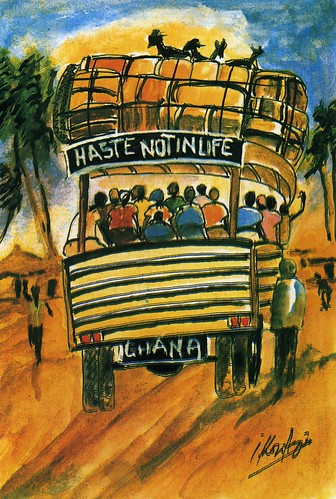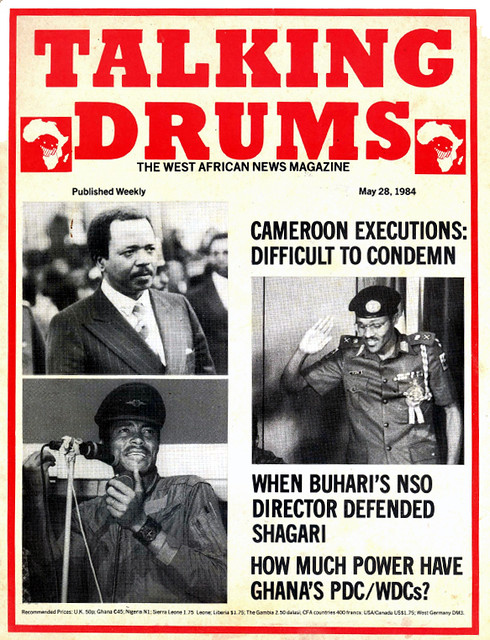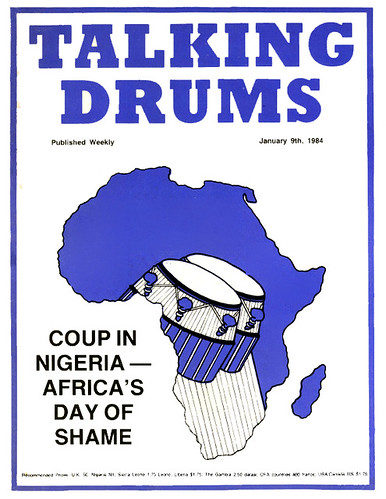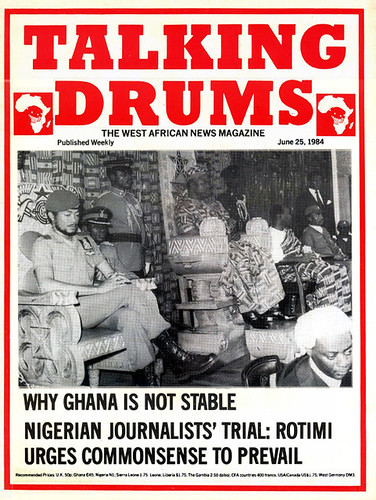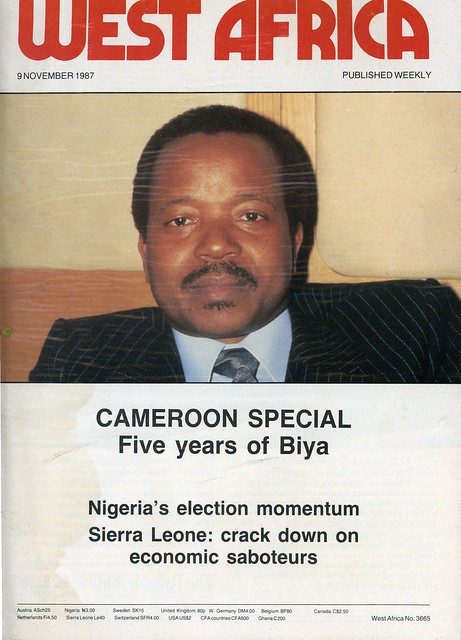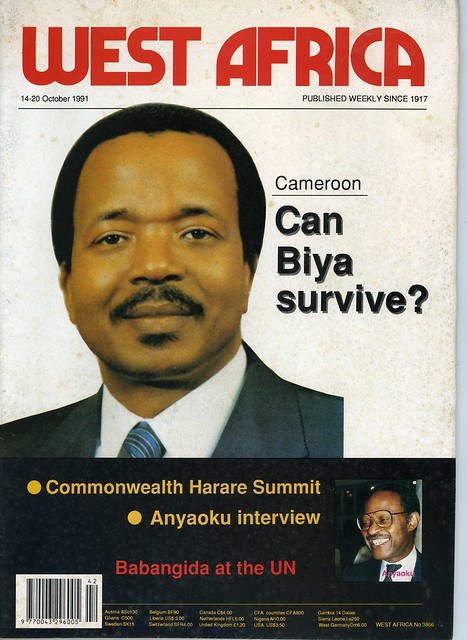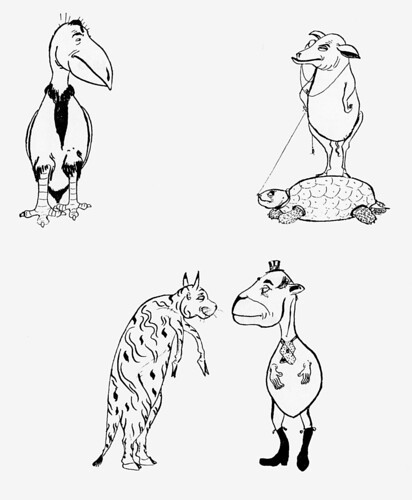A Familiar Arc
I found myself working from home yesterday (on Saturday!) so I only managed to start watching the Ghana-Uganda world cup qualifier match in the 91st minute. I was shocked initially to find a scoreline of 0-0, I had fully expected to see Ghana with a comprehensive lead. After all, that was the only way in which the team could even hope advance to the world cup. Our destiny was in our hands, everyone knew that. Execution in this game, and a little bit of luck in the other group game was the forecast. I checked the game clock and, yes, it did read 90:32. We were in extra time with 3½ minutes to go. No time to wonder about whatever must have taken place in the previous 90 minutes. We do like making things difficult for us. Minnows though the Ugandans are in football, the same team did hold us to an ineffectual draw earlier. But wait, what was I seeing? It looked as if Uganda were the team doing all the pressing. Both teams needed a win in order to keep any chance alive.
Why do we make things so difficult for ourselves, I kept asking? But then at the back of my mind, I know that we have Accra Hearts of Oak's motto in mind: Never say die. Anything thing could happen. "We need the ball, we need the ball.", I implored YouTube as the clock kept ticking. Still the Ugandans controlled possession, pressing forward with the desperation I was rather expecting from the Black Stars. 91 minutes... 92 minutes... 93 minutes... And then with 25 seconds to go, Thomas Partey, our in-form striker from Athletico Madrid, somehow got the ball and took it on himself to give it the old try with a long shot on goal that bounced viciously, the ball rebounded off the Ugandan keeper and a Ghanaian player, I didn't catch, was first to react on the follow-on and tapped the ball sweetly, improbably, but definitely into the back of the goal. We scored!
And so I screamed.
I screamed.
I screamed.
I screamed with that abandon, that primal excitement of unabridged happiness. We've done it. Never say die. We did it. No one was around to witness my joy, but I did notice the squirrel outside my home office had stopped quizzically as I jumped around, nay, as I leaped and stormed out of the room.
"I can't believe it.... Hallelujah...." And so forth...
I thought to the last time, I had screamed so loud, incidentally also in the last minute of a Ghana match - against Uruguay, when first Stephen Appiah's left hand shot was parried on the goal line and then Mensah's header was batted back by Luiz Suarez's handball. Back then, I could taste the semi-finals and even the finals, we feared no one.
I run back into the room to see the celebrations. I could taste it, we needed Congo to not drop the ball against Egypt but we would do the business and surely defeat Egypt in our last match. And then the scene that greeted me was perplexing. The Ghanaian players were surrounding the referee. My heart dropped, a stolen victory. The commentators couldn't believe it and the replays were showing that the linesman had raised his flag for offside. Perfidy.
That was when I welcomed back that old friend of mine: the familiar arc of disappointment. Our close companion in the ongoing Ghanaian narrative. And how could it be otherwise I suppose? And I knew, all too well, the inevitable aftermath.
Our dream had ended. Talents that should undoubtedly be showcased on the greatest of world stages would have to be spectators. My allegiances for the next World Cup would have to be reassessed. True we were clearly robbed and yet, why where we ever in this position? Why months earlier had we drawn with these same opponents at home, at Baba Yara stadium? I know so many who couldn't even bear to watch this match because they feared this result. A draw or defeat when only victory would do. Oh well, I wallowed and reacquainted myself in the comforting contours of disappointment.
Hours later, I couldn't bear to read about the controversy or about whatever had transpired in the previous 90 minutes. I read talk about an earlier disallowed goal or the penalty that wasn't granted. Or the theory that that the referee had disallowed the goal not for the linesman's spurious offside call but, rather, had blown his whistle for full time as the ball was headed to goal but before it had crossed the line. I read people bringing up that we had a good case if we appealed. Remember that South Africa and Senegal would have to replay their qualifying match because of atrocious officiating that even got that (Ghanaian!) referee banned for life. And so forth... Now that Ghanaians have taken to the internet in droves, our infectious argumentativeness and conversational craziness is in full display on social media. I savoured the taste of disappointment, that ache at the back of my throat.
Ghanaians are good at recriminations. Scapegoating comes naturally to us, born of fragility and proximity to poverty. Our existence is oft-precarious, so, well, we excel at recriminations instead of getting on with things. Its not a pretty cultural trait and it comes out at the worst times in our culture, say at funerals. At its extreme, we even see lynching and mob justice on our streets.
It is tempting to read a lot in a football match or indeed any sport event. When things are going well for a community, sports can be the great signifier. Perhaps it is for the best that we can't dream about Russia 2018. Germany went back to the drawing books after repeated misfortune in past campaigns and now has a nigh-unbeatable team. One hopes we can move on, learn our lessons and get on with it. Still, our expectations have been reset since we emerged as a force in 2006. Who could forget the excitement of Ghana vrs USA, The African Nation and The American Dream. We almost made it in 2010, and even in 2014, we gave Germany their toughest match on their road to victory, unlucky as we were to be in the Group of Death. With a little luck everything could be very different. But there lies the way of our good friend disappointment.
Hours later, it would be about the panic about that horrible fire and explosions at Atomic junction. The calls from family, the worry about all those we know who might have been affected. Going forward, searches will no longer bring up uplifting images of Atomic Junction, nuclear power in an African suburb, rather we will be recalling our dearth of infrastructure, the mushroom clouds of burning gas and fuel, and the hopping fires amidst a surging mass of humanity. Our struggle with development and modernity remains fraught, safety a perennial afterthought in our race to catch up with the future. It is no consolation to the victims of this case, whenever we have close encounters with the abyss, we always thank the rain.
Postscript:
Egypt just beat Congo in the other match. The raised hopes turned out to be moot. Embrace me, my friend disappointment, come close to me.
Soundtrack for this note
- Billie Holiday - Good morning heartache
So nice to see you - Dinah Washington - A bad case of the blues
- Aretha Franklin - It hurts like hell
- Sonny Stitt - Blues up and down
Tracing the arc from eternal anticipation to unsatisfying letdown - Ronny Jordan - Blues grinder
'Tis the life of a Black Star's fan to be put through the wringer.
